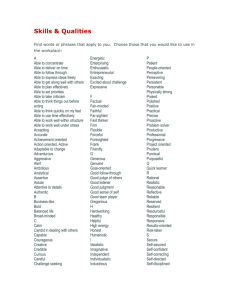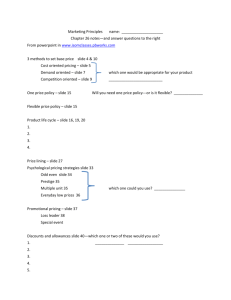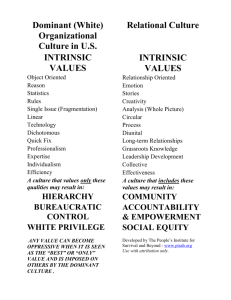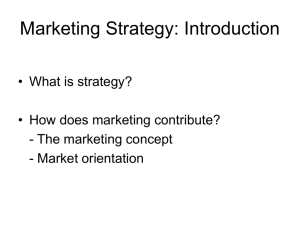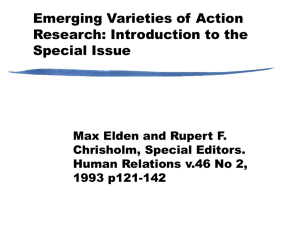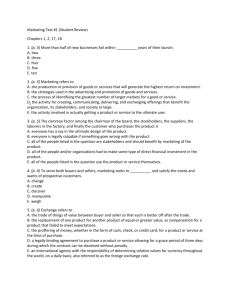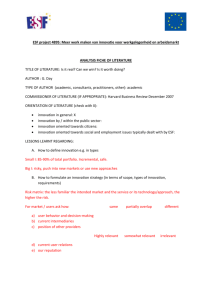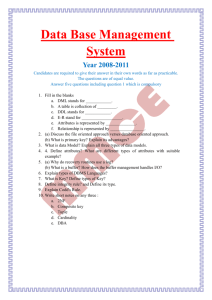Marketing Mix
advertisement
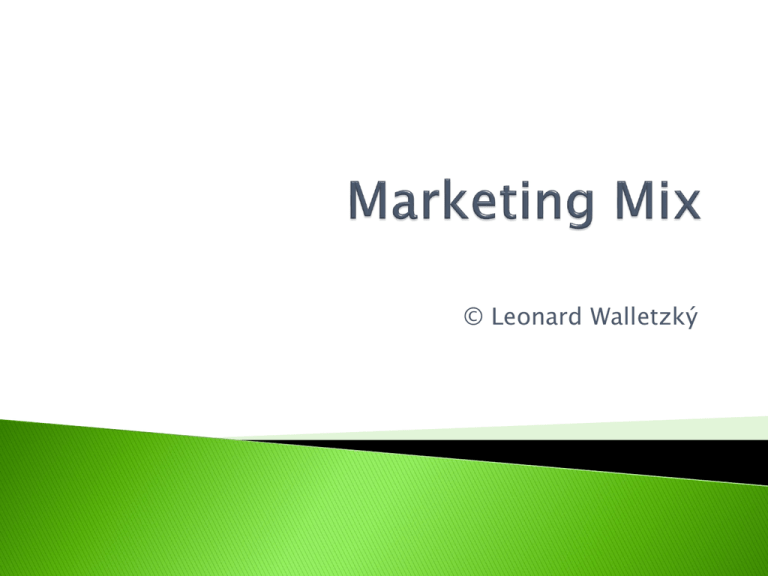
© Leonard Walletzký Context Collaborators Segmentation Targeting Positioning Marketing Mix Company STP 5C Customer Competitors 4P 7P 4C 7C 4S Název prezentace v zápatí 2 The Marketing Mix is one of two interrelated components of strategy The Marketing Mix is a set of controllable and interrelated variables that a company assembles to satisfy a target group better than it’s competitor. Marketing Mix strategy is choosing and implementing the best possible course of action to attain the organization’s long-term objectives and gain competitive edge. Oriented on product Developed by E. Jerome McCarthy in 1960 Used in many companies even today ◦ Strictly product oriented ◦ One way approach Is difficult to use it in service oriented companies Product To satisfy the needs and wants of the target market. Price To make the product affordable to the target market and reflect the value of benefits provided. Place To make the product conveniently available to the target market consistent with their purchasing pattern. Promotions To build and improve consumer demand. Promotions has four components called the Promotions Mix as follows: •Advertising – to effectively inform and persuade the target market •Public Relations – to offer a positive image of the company and the brand •Selling – to get the customers buy •Sales Promotions – to convince 5P People They are the target consumers of the company. They are the ones who are the consumers They sell the products 7P Physical Appearance (Evidence) Physical appearance is the first distinction of a product. A product could be easily recognized by it’s appearance. Process The process of the product is essential in marketing. This determines the capability of the product to supply the demand of the consumers. Created by Efthymios Constantinides in 2002 Oriented to the developmnet of web pages Reaction to the independent IT industry Used by web and IT oriented companies Using 4S What is our market? Who are potencial customers? What are the main roles on web? What does customer expect from web? Why will customer use the web? What does customer motivate to come back? Relations and influence of 3 pillars ◦ Integration the global marketing strategy and activities ◦ Integration of web pages with procesess and connection to the internal information systems (CRM, ERP…) ◦ Integration of thirsd parties systems (Google analytics….) Technical circumstances Administration Used technology Based on customer point of view Focused to customer satisfaction Developed by Robert F. Lauterborn in 1990 Similarities with 4P Product Price Placement Promotion Product oriented Customer Costs Convenience Communication Service oriented What are customer´s needs? What is customer´s problem? Based on customer´s site! What does customer need to invest to get our product/service? How does customer feel while purchasing the product or service? What is his motivation to buy / come again? How do we want to promote our product? How do we get the feedback from stakeholders? How do we involve the customers into value creation? Based on 7P and 4S, together with Service Science experiences Published in 2014 by Leonard Walletzký Adds 3C more Based on People Reaction to Social Networks popularity (Facebook, Linked Inn) Consists also all from definition of the People Excluded from communication Defining all channels (IT or non IT) to distribute information and products What are the forms of value proposition? How the final value of the product/service will be created? Who participates on value creation? Marketing mix 4P – basic product oriented 5P and 7P – enlargening of product oriented marketing 4S – web oriented marketing mix 4C – service oriented marketing mix 7C – service science marketing mix On next presentation – Marketing strategy case studies
